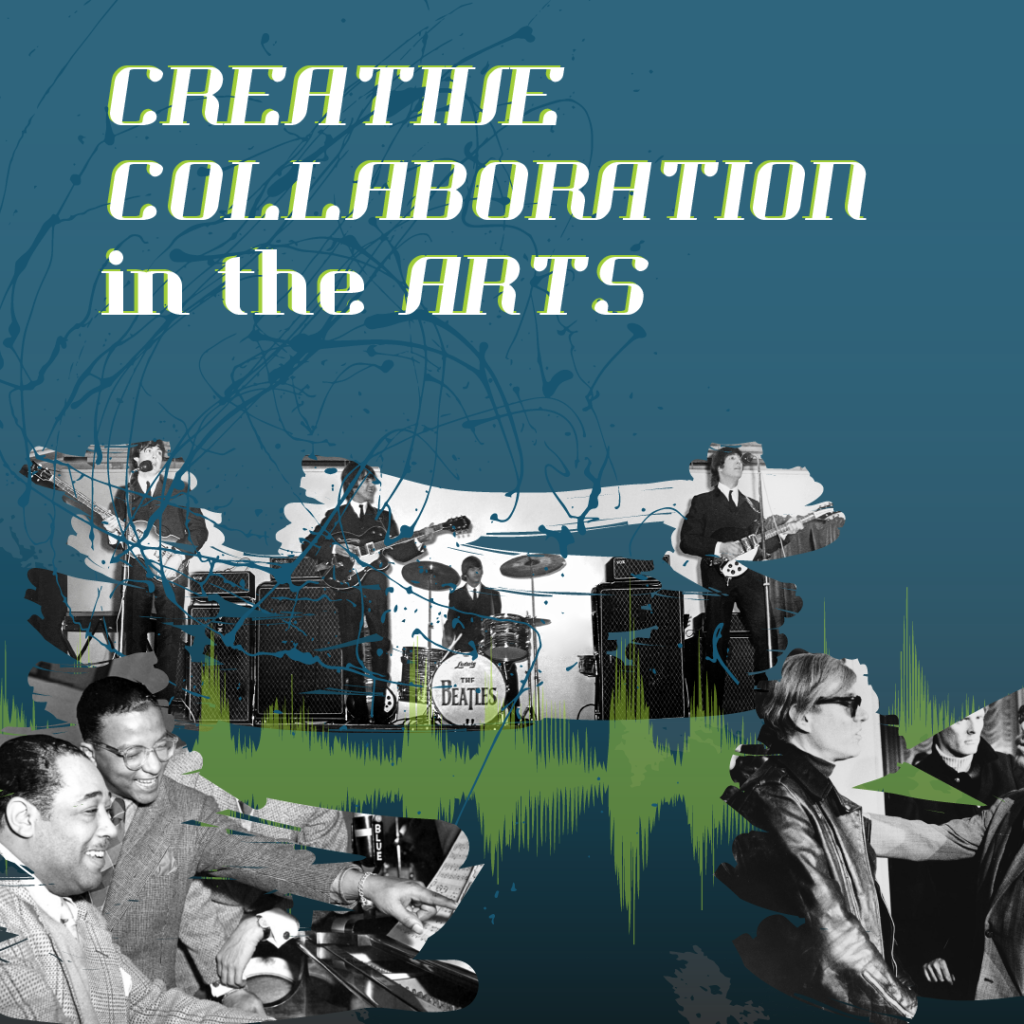New spring courses for first year students
Need a seminar for the spring? Check out these great options:

What Now? Creative Collaboration in the Arts
MUSIC 89S / I&E 89S / ETHICS 89S (ALP, CCI)
W 10:15AM-12:45PM
How is it possible to create great art with someone else? This course answers that question by examining music, visual arts, and literature. Our main references are the Beatles and Duke Ellington, who reached extraordinary levels of accomplishment thanks to vigorous, unmatched levels of collaborative interaction. We also look at Picasso and Braque, Kehinde Wiley, Warhol, Dutch workshops in the seventeenth century, architectural studios, Charles Dickens, T.S. Eliot, and movies. What we might call the ethics of collaboration plays out differently in these two ensembles. Musicians who helped Ellington were largely hidden due to the goal of establishing him as a genius composer who did it all by himself. The Beatles, in contrast, carefully cultivated the image of an egalitarian musical collective, and this image came to dominate rock during the 1960s. By examining creative collaboration across varied fields, students will explore how great innovations come about, what we ow those with whom we collaborate, and how successful models for creation reverberate across time.
MUSIC 89S / I&E 89S / ETHICS 89S (ALP, CCI)
W 10:15AM-12:45PM
How is it possible to create great art with someone else? This course answers that question by examining music, visual arts, and literature. Our main references are the Beatles and Duke Ellington, who reached extraordinary levels of accomplishment thanks to vigorous, unmatched levels of collaborative interaction. We also look at Picasso and Braque, Kehinde Wiley, Warhol, Dutch workshops in the seventeenth century, architectural studios, Charles Dickens, T.S. Eliot, and movies. What we might call the ethics of collaboration plays out differently in these two ensembles. Musicians who helped Ellington were largely hidden due to the goal of establishing him as a genius composer who did it all by himself. The Beatles, in contrast, carefully cultivated the image of an egalitarian musical collective, and this image came to dominate rock during the 1960s. By examining creative collaboration across varied fields, students will explore how great innovations come about, what we ow those with whom we collaborate, and how successful models for creation reverberate across time.
Professor: Thomas Brothers

What Now? Film School: Reimagining Education Through Fiction & Film
EDUC 89S / ETHICS 89S (SS, CCI, EI)
T 3:30 – 6:00PM
When we think of “school,” most of us envision rooms full of desks in rows with students facing a teacher imparting knowledge. Was this nearly-250-year-old way of learning ever the best way to educate? In this course we will explore this question through film and fiction to help us to reconsider what education is—and also what it could be: Why are we here at Duke? What really is the purpose of education? We will use imagined worlds of speculative fiction and sci-fi to interrogate and critically re-examine our own educational experiences—in classrooms, in our personal lives and in larger patterns of education globally. Through this work, we will analyze the choices and decisions educators make in designing curriculum, choosing approaches to teaching, organizing learning experiences, and creating educational spaces. Students will put these ideas into practice via a service-learning experience in local schools in which undergraduates co-develop creative futuristic projects with K-12 students.
EDUC 89S / ETHICS 89S (SS, CCI, EI)
T 3:30 – 6:00PM
When we think of “school,” most of us envision rooms full of desks in rows with students facing a teacher imparting knowledge. Was this nearly-250-year-old way of learning ever the best way to educate? In this course we will explore this question through film and fiction to help us to reconsider what education is—and also what it could be: Why are we here at Duke? What really is the purpose of education? We will use imagined worlds of speculative fiction and sci-fi to interrogate and critically re-examine our own educational experiences—in classrooms, in our personal lives and in larger patterns of education globally. Through this work, we will analyze the choices and decisions educators make in designing curriculum, choosing approaches to teaching, organizing learning experiences, and creating educational spaces. Students will put these ideas into practice via a service-learning experience in local schools in which undergraduates co-develop creative futuristic projects with K-12 students.
Professors: David Malone & Sarah Ishmael

